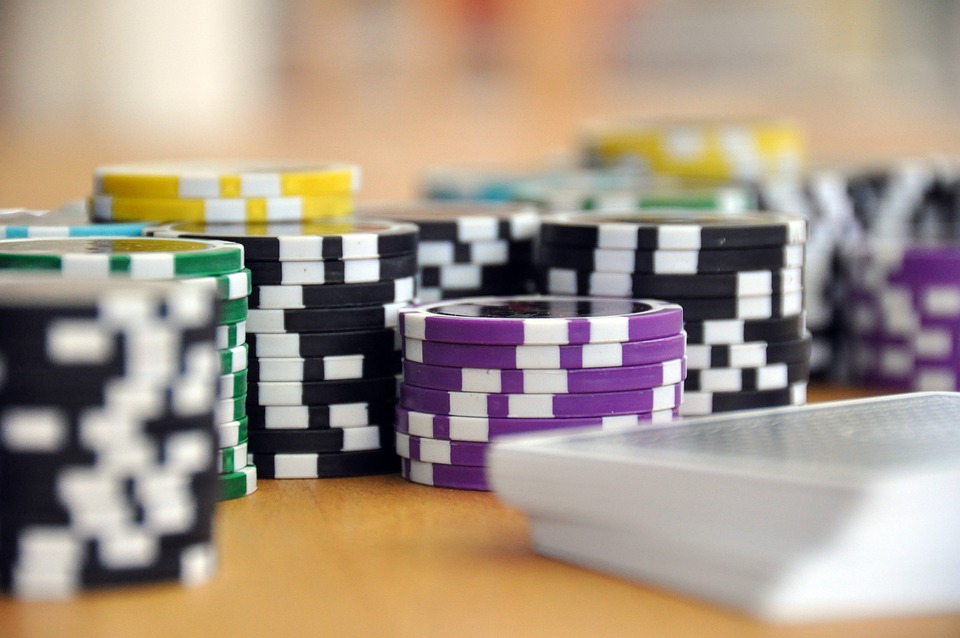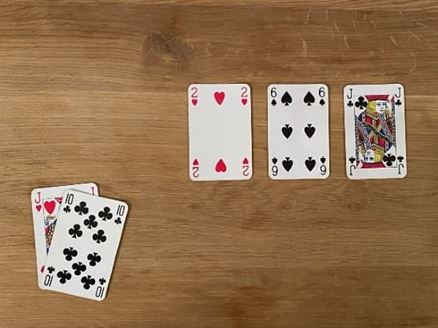Introduction:
Essential Reads in Poker: Books That Will Transform Your Approach to the Game
Poker is a game of skill, strategy, and psychological insight. Whether you’re a beginner looking to learn the basics or an experienced player aiming to take your game to the next level, reading poker books can be invaluable. These essential reads offer valuable insights, tips, and techniques that will transform your approach to the game. From understanding the fundamentals to mastering advanced strategies, these books cover a wide range of topics to help you become a more successful and profitable poker player. So, let’s dive into the world of poker literature and discover the essential reads that will revolutionize your poker game.
The Best Poker Books for Beginners: A Guide to Building a Solid Foundation in the Game
Poker is a game of strategy, skill, and intuition. Whether you’re a novice or an experienced player, there’s always room for improvement. One of the best ways to enhance your understanding of the game is by delving into the world of poker literature. In this article, we’ll explore some essential reads in poker that will transform your approach to the game.
For beginners, building a solid foundation is crucial. Understanding the basic principles and strategies can make a significant difference in your overall performance at the table. That’s why it’s important to start with the right books that cater to your level of expertise.
One highly recommended book for beginners is “The Theory of Poker” by David Sklansky. This classic text covers the fundamental concepts of poker, including hand rankings, pot odds, implied odds, and expected value. Sklansky breaks down complex ideas into simple terms, making it accessible for novices while still providing valuable insights for more advanced players.
Another excellent resource for beginners is “Harrington on Hold ’em: Expert Strategy for No-Limit Tournaments.” Written by Dan Harrington, a former World Series of Poker champion, this book focuses specifically on no-limit Texas Hold ’em tournaments. It provides detailed strategies for different stages of the tournament, such as early, middle, and late stages, helping readers develop a well-rounded approach to the game.
If you’re looking to improve your cash game skills, “Small Stakes Hold ’em: Winning Big With Expert Play” by Ed Miller, David Sklansky, and Mason Malmuth is a must-read. This book offers practical advice on playing low-stakes cash games, which are popular among beginners. It covers topics like starting hand selection, positional play, and bluffing, equipping readers with the tools needed to navigate these games successfully.
Moving on to more intermediate-level material, “Super System” by Doyle Brunson is a classic that should be on every poker player’s bookshelf. Dubbed the “Bible of Poker,” this comprehensive guide covers various poker variations, including Texas Hold ’em, Omaha, and Seven-Card Stud. It features contributions from some of the greatest players in the game, providing diverse perspectives and strategies.
For those interested in online poker, “Winning Poker Tournaments One Hand at a Time” by Eric Lynch, Jon Van Fleet, and Jon Turner is an invaluable resource. This book takes a unique approach by analyzing actual hands played by professional online players. It offers insights into their decision-making processes and helps readers understand the nuances of online play, such as multi-tabling and exploiting opponent tendencies.
Lastly, if you’re ready to take your game to the next level, “Applications of No-Limit Hold ’em” by Matthew Janda is a highly recommended advanced read. This book delves deep into game theory and mathematical concepts behind no-limit Hold ’em. It provides a framework for understanding optimal strategies and explores topics like range construction, bet sizing, and balancing your play.
In conclusion, reading poker books is an essential step towards becoming a well-rounded player. Whether you’re a beginner looking to build a solid foundation or an experienced player seeking to refine your skills, there are books available to cater to your needs. By immersing yourself in these essential reads, you’ll gain valuable insights and transform your approach to the game. So grab a book, study diligently, and watch as your poker game reaches new heights.
Advanced Strategies and Tactics: Must-Read Poker Books for Experienced Players
When it comes to poker, experience and skill are key factors in determining success. While beginners may benefit from introductory books that cover the basics of the game, experienced players need more advanced strategies and tactics to take their gameplay to the next level. Fortunately, there are several must-read poker books available that can transform your approach to the game.
One such book is “Harrington on Hold ’em” by Dan Harrington. This classic text provides valuable insights into tournament play and has been hailed as a bible for serious poker players. Harrington’s strategic advice and analysis of hand ranges will help you develop a deeper understanding of the game and make better decisions at the table.
Another essential read for experienced players is “The Theory of Poker” by David Sklansky. This book delves into the mathematical and theoretical aspects of the game, teaching you how to think like a professional player. Sklansky covers topics such as expected value, pot odds, and bluffing, giving you the tools you need to analyze situations and make optimal plays.
For those interested in online poker, “Professional No-Limit Hold ’em” by Matt Flynn, Sunny Mehta, and Ed Miller is a must-read. This comprehensive guide focuses specifically on the nuances of playing no-limit hold ’em online. The authors provide detailed strategies for each stage of a tournament, as well as tips for exploiting common player tendencies in online games.
If you’re looking to improve your cash game skills, “Small Stakes No-Limit Hold ’em” by Ed Miller, Sunny Mehta, and Matt Flynn is an invaluable resource. This book offers practical advice for navigating low-stakes cash games, where many players tend to be loose and aggressive. You’ll learn how to adjust your strategy based on the specific dynamics of these games, allowing you to maximize your profits.
In addition to these classics, there are newer poker books that have garnered praise from the poker community. “Modern Poker Theory” by Michael Acevedo is one such book that has gained popularity in recent years. This advanced guide explores cutting-edge strategies and concepts, including game theory optimal play. By studying this book, you’ll gain a competitive edge over opponents who may be relying on outdated tactics.
Lastly, “Applications of No-Limit Hold ’em” by Matthew Janda provides a deep dive into the mathematical side of the game. Janda’s book offers insights into topics such as range construction, board textures, and bet sizing. By mastering these concepts, you’ll be able to make more informed decisions and exploit your opponents’ weaknesses effectively.
In conclusion, if you’re an experienced poker player looking to elevate your game, reading advanced strategy books is essential. These books provide valuable insights, analysis, and techniques that can transform your approach to the game. Whether you’re interested in tournament play, online poker, or cash games, there are books available that cater to your specific needs. So, grab a copy of these must-read poker books and start honing your skills today.
Psychological Insights in Poker: Books That Explore the Mental Game of Poker
Poker is not just a game of cards; it’s a game of skill, strategy, and psychology. To truly excel at poker, one must understand the mental aspects that come into play during every hand. This is where psychological insights in poker books come in handy. These books delve deep into the mind games that take place at the poker table, providing invaluable knowledge to players looking to transform their approach to the game.
One such essential read is “The Mental Game of Poker” by Jared Tendler and Barry Carter. This book takes a serious and concise approach to understanding the psychological challenges faced by poker players. It addresses issues like tilt, fear, motivation, and confidence – all factors that can greatly impact a player’s performance. By exploring these topics, Tendler and Carter provide readers with practical strategies to overcome mental hurdles and improve their decision-making skills.
Another notable book in this genre is “Elements of Poker” by Tommy Angelo. Angelo delves into the psychological side of poker through his unique perspective as a professional poker player and coach. He emphasizes the importance of self-awareness and emotional control, teaching readers how to recognize and manage their own biases and emotions at the table. By focusing on personal development, Angelo helps players gain a deeper understanding of themselves, ultimately leading to improved results on the felt.
For those interested in a more academic exploration of the psychological aspects of poker, “Poker: The Mindset Advantage” by Dr. Patricia Cardner and Gareth James is a must-read. This book combines scientific research with practical applications, offering readers a comprehensive look into the cognitive processes involved in playing poker. From decision-making under pressure to managing variance, Cardner and James provide players with valuable insights backed by psychological studies. By understanding the science behind the game, players can make more informed decisions and gain an edge over their opponents.
Moving on, we have “Zen and the Art of Poker” by Larry Phillips. This book takes a philosophical approach to poker, drawing parallels between the game and Zen teachings. Phillips explores concepts such as mindfulness, detachment, and acceptance, highlighting their relevance to poker strategy and mental fortitude. By adopting a Zen mindset, players can learn to detach themselves from outcomes and make rational decisions based on logic rather than emotion.
Lastly, “The Theory of Poker” by David Sklansky is a classic that cannot be overlooked. While it may not explicitly delve into psychological insights, this book provides a solid foundation for understanding the strategic aspects of the game. Sklansky’s analytical approach to poker theory helps readers develop a logical and systematic thought process when making decisions at the table. By mastering the fundamentals outlined in this book, players can build a strong framework upon which to apply the psychological insights gained from other reads.
In conclusion, understanding the psychological aspects of poker is crucial for any serious player looking to improve their game. The books mentioned above offer unique perspectives and valuable insights into the mental game of poker. Whether it’s managing emotions, developing self-awareness, or applying scientific research, these books provide players with the tools they need to transform their approach to the game. So grab a copy, dive into these essential reads, and watch as your poker skills soar to new heights.
Legendary Poker Players’ Memoirs: Books that Offer Inspiration and Wisdom from the Pros
Legendary Poker Players’ Memoirs: Books that Offer Inspiration and Wisdom from the Pros
In the world of poker, there are players who have become legends. They have achieved great success, conquered challenging opponents, and amassed fortunes through their skillful play. These legendary players have stories to tell, insights to share, and wisdom to impart. For those looking to improve their own game or simply gain a deeper understanding of the intricacies of poker, these memoirs offer invaluable lessons and inspiration.
One such book is “The Godfather of Poker” by Doyle Brunson. As one of the most respected and influential figures in the history of poker, Brunson’s memoir provides an intimate look into his life as a professional player. From his early days playing underground games in Texas to his triumphs at the World Series of Poker, Brunson shares his experiences, strategies, and mindset that propelled him to the top of the poker world. This book is not only a captivating read but also a treasure trove of knowledge for aspiring players.
Another memoir worth mentioning is “Ace on the River” by Barry Greenstein. Known as the “Robin Hood of Poker,” Greenstein’s book goes beyond the typical poker strategy guides. It delves into the psychological aspects of the game, emphasizing the importance of discipline, patience, and emotional control. Through personal anecdotes and thought-provoking insights, Greenstein offers readers a glimpse into the mind of a successful poker player. His emphasis on ethical play and giving back to society sets this memoir apart from others in its genre.
For those seeking inspiration from a true underdog story, Chris Moneymaker’s “Moneymaker: How an Amateur Poker Player Turned $40 into $2.5 Million at the World Series of Poker” is a must-read. Moneymaker’s unlikely journey from amateur player to WSOP Main Event champion captured the imagination of millions and sparked the poker boom of the early 2000s. His memoir chronicles his meteoric rise in the poker world, providing valuable insights into his mindset, strategies, and the unique challenges he faced along the way. Moneymaker’s story is a testament to the power of determination and the belief that anyone can achieve greatness with enough dedication.
In “Poker Brat: Phil Hellmuth’s Autobiography,” readers get an inside look into the mind of one of the most polarizing figures in poker. Known for his fiery temper and record-breaking 15 World Series of Poker bracelets, Hellmuth shares his highs and lows, victories and defeats, and the lessons he has learned throughout his career. This candid and unfiltered account offers a glimpse into the competitive world of professional poker and the mental fortitude required to succeed at the highest level.
Lastly, “Super System” by Doyle Brunson deserves a mention as it is widely regarded as one of the most influential poker books ever written. This comprehensive guide covers various aspects of the game, including Texas Hold’em, Seven-Card Stud, and other popular variations. It features contributions from some of the greatest players of all time, such as Mike Caro, Chip Reese, and Bobby Baldwin. Whether you are a beginner or an experienced player, “Super System” provides invaluable advice and strategies that will undoubtedly transform your approach to the game.
In conclusion, legendary poker players’ memoirs offer more than just entertaining stories; they provide inspiration, wisdom, and valuable insights into the world of poker. From Doyle Brunson’s intimate account of his journey to Barry Greenstein’s emphasis on ethics and giving back, these memoirs go beyond strategy guides to explore the psychological and emotional aspects of the game. Chris Moneymaker’s underdog story serves as a reminder that success can come from unexpected places, while Phil Hellmuth’s autobiography offers a raw and unfiltered look into the mind of a poker brat. And, of course, “Super System” stands as a timeless classic that every serious poker player should have on their bookshelf. So, if you’re looking to take your poker game to the next level, these essential reads are a great place to start.In conclusion, essential reads in poker are books that have the potential to transform your approach to the game. These books provide valuable insights, strategies, and techniques from experienced players and experts in the field. By studying these recommended reads, players can enhance their understanding of the game, improve their decision-making skills, and ultimately elevate their overall performance at the poker table.





